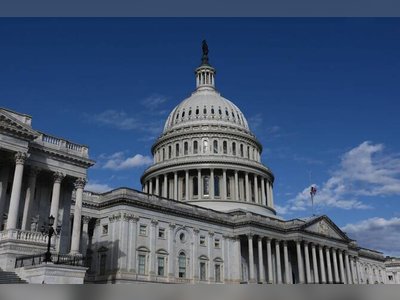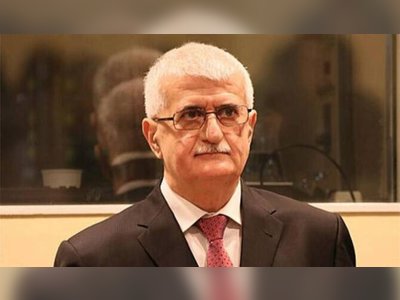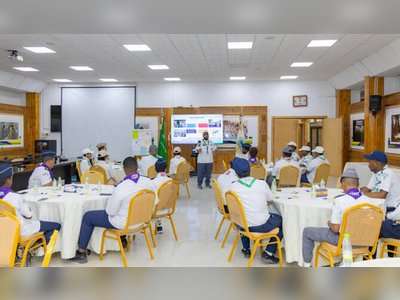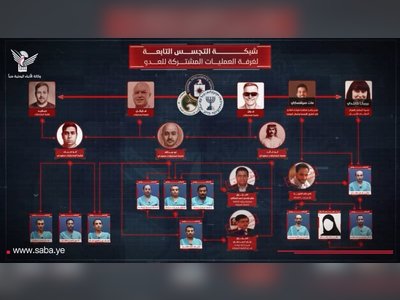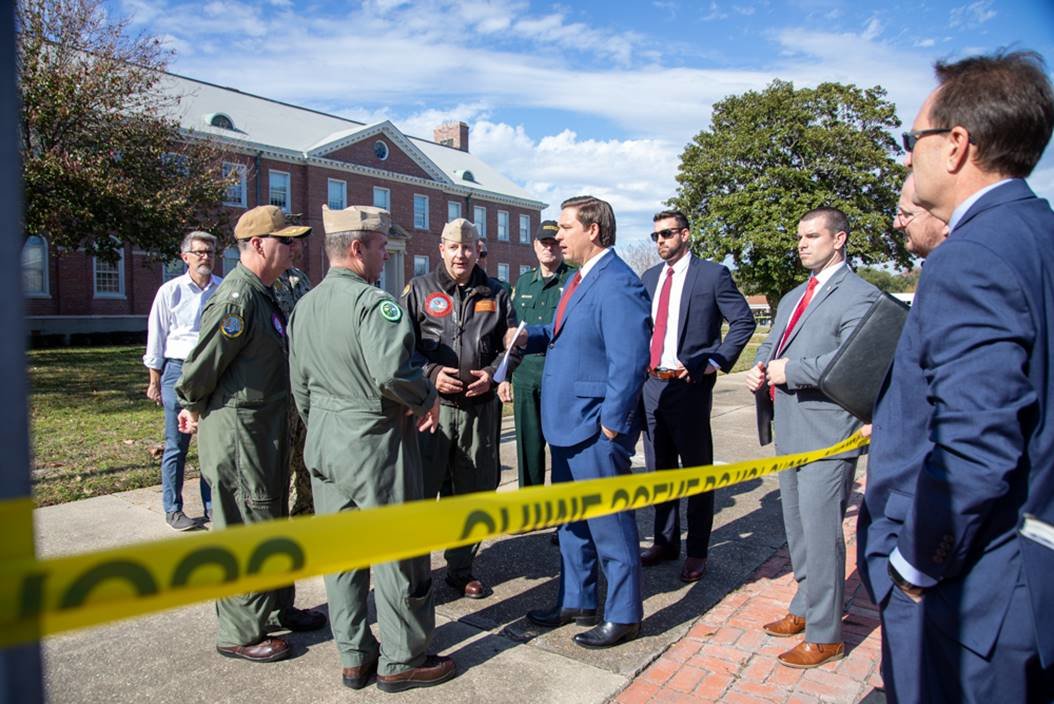
11th Circuit Revives Claim Against Saudi Arabia Over NAS Pensacola Mass Shooting
Appeals court rules that victims can pursue a negligent-vetting claim under the Justice Against Sponsors of Terrorism Act
A federal appeals court has reinstated part of a lawsuit brought by survivors and families of servicemembers killed in the 2019 shooting at Naval Air Station Pensacola, clearing the way for their legal claims against the Kingdom of Saudi Arabia.
The three-judge panel of the United States Court of Appeals for the Eleventh Circuit found that the plaintiffs may proceed under the Justice Against Sponsors of Terrorism Act (JASTA), asserting that Saudi Arabia committed “grossly negligent acts of commission” by inadequately vetting the shooter.
The case stems from the December 6 2019 rampage by Mohammed Saeed Al‑Shamrani, a pilot-trainee of the Royal Saudi Air Force training in the United States, who killed three U.S. servicemembers and injured multiple others.
A federal district judge initially dismissed the suit in March 2024, citing sovereign-immunity protections under the Foreign Sovereign Immunities Act (FSIA).
The appeal overcame that hurdle by distinguishing between acts of omission (which remain immune) and affirmative acts of commission deemed accountable under JASTA.
Judge Stanley Marcus, writing for the unanimous panel, held that allegations Saudi Arabia deliberately submitted false information to facilitate the trainee’s U.S. entry and that it nominated him for a U.S. military-training scholarship were sufficiently concrete to move forward.
The court wrote: “These claims are facially sufficient because they are based on a series of acts of commission (rather than acts of omission) taken by the Kingdom in hiring and vetting Al-Shamrani that rose to the level of gross negligence under Florida law.”
Saudi Arabia, which declined to comment, remains accused of legally providing the training access that enabled the shooting.
Legal analysts say the ruling marks a significant precedent in holding foreign states accountable under JASTA for training-related misconduct inside the United States.
The case returns to the federal district court in the Northern District of Florida for further proceedings.
The next phase will focus on discovery, allegations of Saudi state involvement, and whether the remaining claims survive renewed immunity challenges.
Victims’ counsel welcomed the ruling, calling it a “resounding step” toward their pursuit of justice.
The outcome may reshape civil-liability expectations for foreign-state participants in U.S. training programmes, especially where acts of terrorism are alleged.
The court’s decision thus injects new momentum in a case tied to one of the most serious training-base attacks on U.S. soil since September 11-style terrorism, and invites closer scrutiny of how military training programmes vet foreign participants.
The three-judge panel of the United States Court of Appeals for the Eleventh Circuit found that the plaintiffs may proceed under the Justice Against Sponsors of Terrorism Act (JASTA), asserting that Saudi Arabia committed “grossly negligent acts of commission” by inadequately vetting the shooter.
The case stems from the December 6 2019 rampage by Mohammed Saeed Al‑Shamrani, a pilot-trainee of the Royal Saudi Air Force training in the United States, who killed three U.S. servicemembers and injured multiple others.
A federal district judge initially dismissed the suit in March 2024, citing sovereign-immunity protections under the Foreign Sovereign Immunities Act (FSIA).
The appeal overcame that hurdle by distinguishing between acts of omission (which remain immune) and affirmative acts of commission deemed accountable under JASTA.
Judge Stanley Marcus, writing for the unanimous panel, held that allegations Saudi Arabia deliberately submitted false information to facilitate the trainee’s U.S. entry and that it nominated him for a U.S. military-training scholarship were sufficiently concrete to move forward.
The court wrote: “These claims are facially sufficient because they are based on a series of acts of commission (rather than acts of omission) taken by the Kingdom in hiring and vetting Al-Shamrani that rose to the level of gross negligence under Florida law.”
Saudi Arabia, which declined to comment, remains accused of legally providing the training access that enabled the shooting.
Legal analysts say the ruling marks a significant precedent in holding foreign states accountable under JASTA for training-related misconduct inside the United States.
The case returns to the federal district court in the Northern District of Florida for further proceedings.
The next phase will focus on discovery, allegations of Saudi state involvement, and whether the remaining claims survive renewed immunity challenges.
Victims’ counsel welcomed the ruling, calling it a “resounding step” toward their pursuit of justice.
The outcome may reshape civil-liability expectations for foreign-state participants in U.S. training programmes, especially where acts of terrorism are alleged.
The court’s decision thus injects new momentum in a case tied to one of the most serious training-base attacks on U.S. soil since September 11-style terrorism, and invites closer scrutiny of how military training programmes vet foreign participants.
